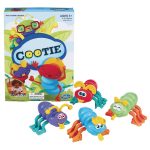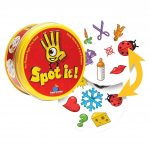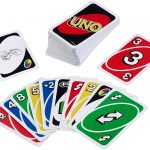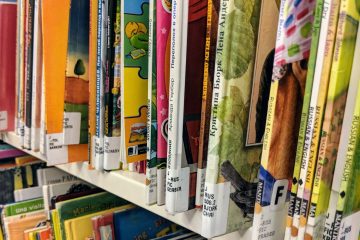Research tells us one of the best ways to promote healthy brain development for infants and toddlers is play! Playing, interacting, and responding to our little ones is essential for their growth. It maximizes the love they feel and simply makes parenting fun. With playing comes great learning opportunities as well! We’ve listed our favorite games below that also have learning benefits. These benefits include soft skills such as listening, problem solving, and collaboration.
Cootie
First up, a game from my childhood: Cootie! I hope I don’t age myself too much revealing this, but Cootie was one of the first games I remember playing as a child. Cootie helps players with counting, number identification, reading a chart, and finger dexterity.
Spot It!
I first came across Spot It! in a class I substitute taught. There are several editions of Spot It! and it is really fun for adults and children to compete with one another to see who finds a match first. Spot It! can help develop matching skills, sight word recognition, and the speed of reading words.
Uno
Uno is another fun matching game played by children and adults alike. If you think about it, Uno has a very simple premise: play a card that has a matching color or number. Easy! Toddlers will learn matching colors, identifying numbers, and even counting (draw four).
Playing and learning don’t have to include cards or a board. Sometimes the most entertaining games are played only with the imagination. Here are a few more fun and cost-effective learning games for your kiddos:
Hot and Cold
Hide an object, any object, preferably your child’s beloved stuffed animal or a yummy snack. Let your child mosey around the space as you voice if they are cold (far away) or hot (close by). Your toddler will learn patience and persistence with this fun game.
Simon Says
This game is great for children of all ages. They follow your instructions, so long as they are prefaced with the words “Simon says”. If not, the player is out. Teach your child body parts with commands such as, “Simon says wiggle your nose,” “Simon says hold your left elbow,” and “Simon says lift your right foot.” Or use similes as a form of role-playing: “Simon says hop like a frog,” “Simon says stand like a flamingo,” “Simon says roar like a lion.”





